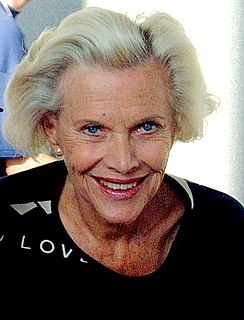A Quote by Tim Soutphommasane
No-one wants to see violence of any kind on our streets, certainly not any violence that's justified by extreme nationalist ideas or that targets people because of their religion.
Related Quotes
I think we can see violence in a whole range of realms. We certainly see it in the media, where extreme violence is now so pervasive that people barely blink when they see it, and certainly raise very few questions about what it means pedagogically and politically. Violence is the DNA, the nervous system of this system's body politic.
I'm so sick of seeing guns in movies, and all this violence; and if there was going to be violence in Pines, I wanted it to actually be narrative violence. I wasn't interested in fetishizing violence in any way of making it feel cool or slow-motion violence. I wanted it to be just violence that affected the story.
When you call yourself an Indian or a Muslim or a Christian or a European, or anything else, you are being violent. Do you see why it is violent? Because you are separating yourself from the rest of mankind. When you separate yourself by belief, by nationality, by tradition, it breeds violence. So a man who is seeking to understand violence does not belong to any country, to any religion, to any political party or partial system; he is concerned with the total understanding of mankind.
Non-violence is a very powerful weapon. Most people don't understand the power of non-violence and tend to be amazed by the whole idea. Those who have been involved in bringing about change and see the difference between violence and non-violence are firmly committed to a lifetime of non-violence, not because it is easy or because it is cowardly, but because it is an effective and very powerful way.
Any of us who listen to the news or listen to stories our neighbors tell are accustomed to violence. We have to decide then to ignore the violence and create a gentler world in our fiction, or to heighten the violence through the use of point-of-view in order to explore it and gain some insight and understanding. Since I'm living with the violence and trouble in my brain, it's kind of a relief to write about it, to get it on paper, to put it in context, to find meaning in it.
...people think non-violence is really weak and non-militant. These are misconceptions that people have because they don't understand what non-violence means. Non-violence takes more guts, if I can put it bluntly, than violence. Most violent acts are accomplished by getting the opponent off guard, and it doesn't take that much character, I think, if one wants to do it.
I must remind you that starving a child is violence. Suppressing a culture is violence. Neglecting school children is violence. Punishing a mother and her family is violence. Discrimination against a working man is violence. Ghetto housing is violence. Ignoring medical need is violence. Contempt for poverty is violence.
Domestic violence can be so easy for people to ignore, as it often happens without any witnesses and it is sometimes easier not to get involved. Yet, by publicly speaking out against domestic violence, together we can challenge attitudes towards violence in the home and show that domestic violence is a crime and not merely unacceptable.
Hopefully we'll get to a point where there are absolutely no restrictions on any kind of violence in movies. I'd love to see us get to a point where you can go to theaters and see movies unrated and that people know its not real violence. It's all pretend. It's all fake. It's just acting. It's just magic tricks.
I didn't want to be a victim of my own message [in Trust film]. I didn't want to take advantage of a 14-year-old actor. I didn't want there to be any nudity, or any real overt violence. I think it's more terrifying that there is no violence, in that moment. There's control and there's power, but there's no violence.
My approach to violence is that if it's pertinent, if that's the kind of movie you're making, then it has a purposeI think there's a natural system in your own head about how much violence the scene warrants. It's not an intellectual process, it's an instinctive process. I like to think it's not violence for the sake of violence and in this particular film, it's actually violence for the annihilation of violence.





































